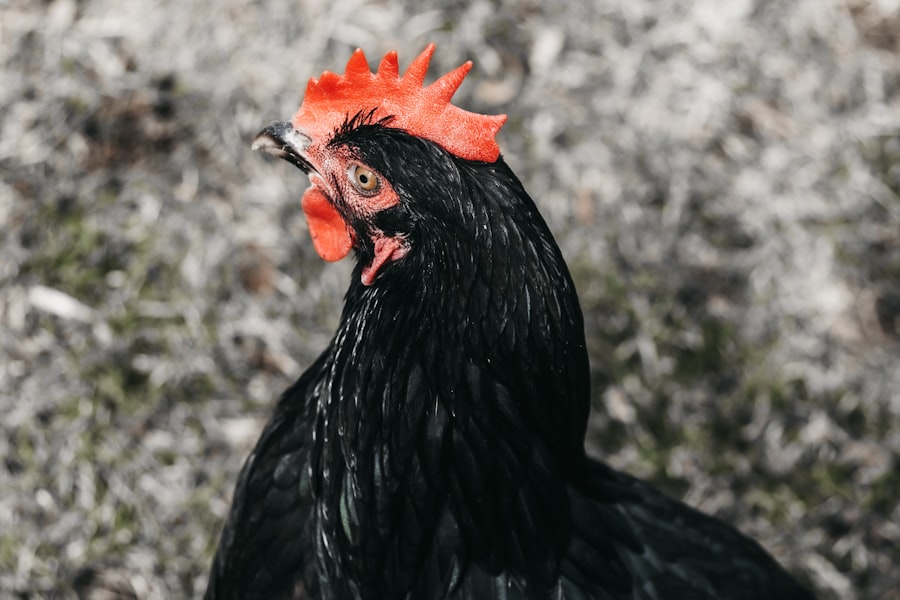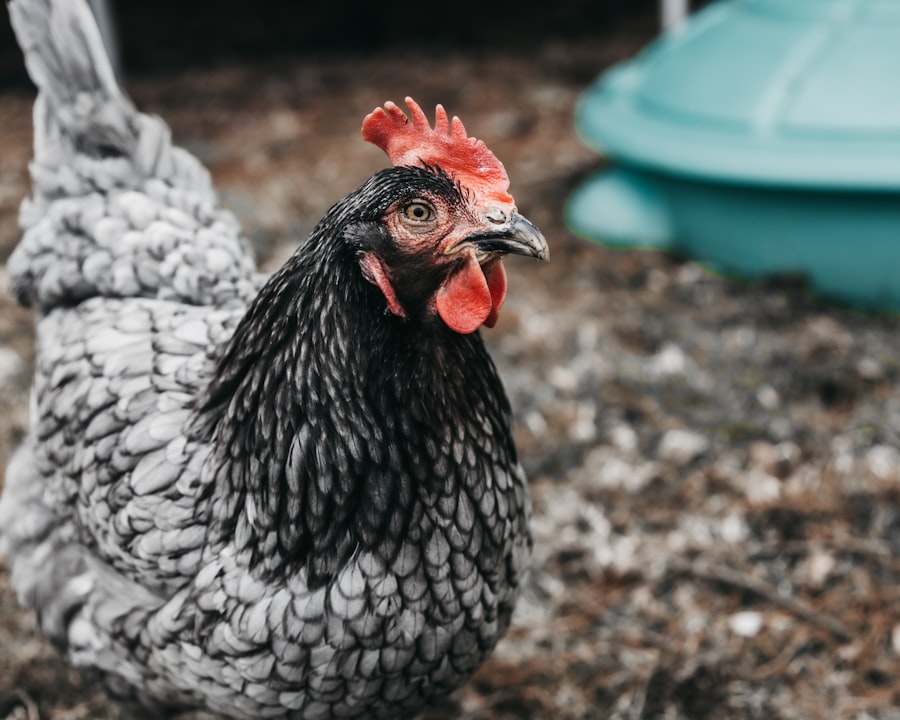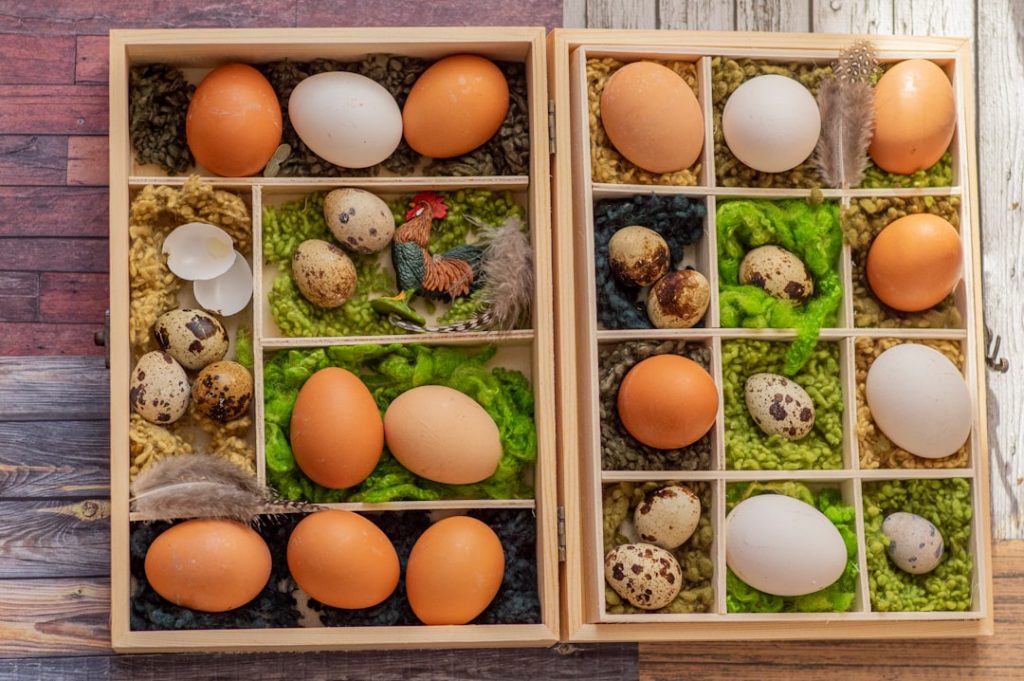When selecting chicken breeds for a backyard flock, several factors should be considered. Climate is a crucial consideration, as some breeds are better adapted to cold weather, while others thrive in warmer conditions. The intended purpose of raising chickens is also important, whether for egg production, meat, or both.
Some breeds are dual-purpose, while others are specialized for either eggs or meat. Temperament is another significant factor, with some breeds known for their docile nature and others for being more aggressive. The size of the breed should be taken into account, especially for those with limited space.
Smaller breeds may be more suitable for confined areas. Egg-laying capabilities vary among breeds, with some known for high production and others for less frequent laying. The size and color of eggs produced by different breeds also differ.
Some breeds lay larger eggs, while others produce smaller ones. Egg color can range from white to various shades of brown, depending on the breed. The overall health and longevity of the breed should be considered.
Some chicken breeds are known for their hardiness and resistance to common poultry diseases, while others may require more intensive care and attention. By evaluating these factors, individuals can select chicken breeds that best suit their specific needs and preferences for backyard poultry keeping.
Table of Contents
Key Takeaways
- Consider the breed’s temperament, size, and egg-laying capabilities when choosing the right breed for your backyard flock.
- Provide at least 2-3 square feet of space per chicken in the coop, as well as access to a secure outdoor area for foraging and exercise.
- Offer a balanced diet of commercial feed, fresh water, and occasional treats like fruits and vegetables to ensure proper nutrition for your chickens.
- Schedule regular check-ups with a poultry veterinarian and be prepared to address common health issues such as parasites and respiratory infections.
- Encourage socialization and provide entertainment for your chickens to reduce stress and boredom, such as perches, dust baths, and toys.
Providing the Right Housing and Space
Coop Requirements
Chickens need a safe and secure coop to protect them from predators and the elements. The coop should be well-ventilated and provide enough space for the chickens to roost and lay eggs comfortably. Additionally, the coop should have nesting boxes where the hens can lay their eggs.
Outdoor Run Essentials
It’s also important to provide a secure outdoor run where the chickens can roam and forage during the day. The run should be enclosed with wire mesh to prevent predators from getting in and chickens from getting out. Furthermore, it’s essential to provide plenty of shade and shelter in the run to protect the chickens from extreme weather conditions.
Space and Cleaning Considerations
When it comes to providing housing and space for your chickens, it’s crucial to consider the size of your flock. Each chicken should have at least 2-3 square feet of space inside the coop, and at least 8-10 square feet of space in the outdoor run. If you have a larger flock, you’ll need to provide more space to accommodate all of the chickens comfortably. Additionally, it’s vital to keep the coop and run clean and free of debris to prevent the spread of disease and parasites. Regularly cleaning and maintaining the coop and run will help keep your chickens healthy and happy.
By providing the right housing and space for your chickens, you can ensure that they have a safe and comfortable environment to thrive in.
Feeding and Nutrition

Feeding and nutrition are crucial aspects of raising healthy chickens in your backyard. A balanced diet is essential for chickens to lay eggs, grow, and maintain good health. A good quality commercial feed is a great base for their diet, but it’s also important to supplement their diet with fresh fruits and vegetables, as well as grains and seeds.
Additionally, providing access to grit is important for chickens as it aids in their digestion by helping them grind up their food in their gizzards. It’s also important to provide access to clean water at all times, as chickens need water to stay hydrated and healthy. On the other hand, when it comes to feeding and nutrition, it’s important to consider the specific dietary needs of different breeds of chickens.
For example, some breeds may require a higher protein content in their diet, especially if they are raised for meat production. Similarly, laying hens may require a diet that is higher in calcium to support egg production. It’s also important to consider the age of the chickens when determining their dietary needs.
Chicks require a different diet than adult chickens, so it’s important to provide them with a starter feed that is specifically formulated for their nutritional needs. By paying attention to the specific dietary needs of your chickens, you can ensure that they are getting the proper nutrition to thrive.
Health and Veterinary Care
Maintaining the health of your backyard chickens is essential for their well-being and productivity. Regular health checks are important to monitor for any signs of illness or injury. It’s also important to keep an eye on their overall behavior and appearance, as changes in these can be indicators of health issues.
Additionally, providing a clean and well-maintained living environment is crucial for preventing disease and parasites. Regularly cleaning the coop and run, as well as providing access to fresh water and a balanced diet, can help keep your chickens healthy. On the other hand, when it comes to health and veterinary care for your backyard chickens, it’s important to have a good relationship with a poultry veterinarian who can provide guidance on preventative care and treatment options.
It’s also important to have a basic understanding of common chicken illnesses and how to recognize their symptoms. By being proactive about your chickens’ health and seeking veterinary care when needed, you can help ensure that they live long and healthy lives.
Chickens are social animals that thrive on interaction with their flock mates. Providing opportunities for socialization is important for their mental well-being. Allowing them access to outdoor space where they can roam and forage together can help fulfill their natural instincts and provide mental stimulation.
Additionally, providing enrichment activities such as hanging treats or toys in their coop or run can help keep them entertained. On the other hand, when it comes to socialization and entertainment for your backyard chickens, it’s important to consider their individual personalities and preferences. Some chickens may be more outgoing and enjoy interacting with humans, while others may be more reserved.
It’s important to respect their boundaries and provide opportunities for socialization that they are comfortable with. By providing a stimulating environment and opportunities for socialization, you can help keep your chickens happy and content.
Egg Production and Care

Nutrition for Optimal Egg Production
When raising chickens for egg production, it’s crucial to provide a balanced diet that is high in protein and calcium. This essential nutrient combination supports egg production and ensures a consistent supply of high-quality eggs.
A Clean and Safe Environment
In addition to a nutritious diet, ensuring your hens have access to clean nesting boxes is vital for collecting eggs promptly and preventing breakage. This clean environment also helps reduce stress and promotes healthy egg-laying habits.
Monitoring for Health and Well-being
Regular monitoring of your hens’ laying patterns and behavior is crucial for identifying potential health issues or stress. Changes in their laying habits or appearance can be indicative of underlying problems. Collecting eggs regularly also helps prevent them from being pecked or broken by other hens.
A Steady Supply of Fresh Eggs
By providing proper care and monitoring your hens’ egg production, you can ensure a steady supply of fresh eggs. With attention to nutrition, environment, and health, you can enjoy a consistent and high-quality egg supply from your backyard flock.
Predation and Security
Protecting your backyard chickens from predators is essential for their safety and well-being. Common predators such as raccoons, foxes, and birds of prey can pose a threat to your flock. Ensuring that their coop and run are secure with sturdy fencing and locks can help prevent predators from gaining access.
Additionally, providing roosts or perches inside the coop can give your chickens a safe place to escape from potential threats. On the other hand, when it comes to predation and security for your backyard chickens, it’s important to be proactive about preventing potential threats. Regularly inspecting the coop and run for signs of damage or weakness can help identify areas that may need reinforcement.
Additionally, providing motion-activated lights or alarms can help deter nocturnal predators from approaching your coop at night. By taking steps to secure your chickens’ living environment, you can help protect them from potential threats. In conclusion, raising backyard chickens can be a rewarding experience that provides fresh eggs, entertainment, and companionship.
By choosing the right breed, providing proper housing and space, ensuring a balanced diet and nutrition, maintaining their health through veterinary care, promoting socialization and entertainment, monitoring egg production and care, as well as protecting them from predation through security measures; you can create a safe and comfortable environment for your flock to thrive in. With proper care and attention, your backyard chickens can become an integral part of your family and provide years of enjoyment.
If you’re looking for tips on how to keep bantam chickens, you should check out this article on Poultry Wizard. They have a wealth of information on poultry care and breeding, including articles on mating season for turkeys and whether quails sit on their eggs. It’s a great resource for anyone interested in raising and breeding poultry.
FAQs
What are bantam chickens?
Bantam chickens are a smaller breed of chicken, typically about one-fourth to one-fifth the size of standard chicken breeds. They are known for their ornamental and decorative qualities, as well as their friendly and docile nature.
What do bantam chickens eat?
Bantam chickens eat a diet consisting of commercial poultry feed, supplemented with grains, fruits, vegetables, and occasional treats such as mealworms or kitchen scraps. It’s important to provide them with a balanced diet to ensure their health and well-being.
How much space do bantam chickens need?
Bantam chickens require about 2-3 square feet of space per bird in a coop, and at least 8-10 square feet of outdoor space per bird in a run or free-range area. It’s important to provide them with enough space to move around and exhibit natural behaviors.
What kind of housing do bantam chickens need?
Bantam chickens need a secure and predator-proof coop for roosting and laying eggs, as well as a run or outdoor area for exercise and foraging. The coop should have nesting boxes, perches, and adequate ventilation.
How do you keep bantam chickens healthy?
To keep bantam chickens healthy, provide them with a balanced diet, clean water, regular access to fresh air and sunlight, and regular health check-ups. It’s also important to keep their living area clean and free from pests and parasites.
Do bantam chickens need special care in cold or hot weather?
Bantam chickens may need extra care in extreme weather conditions. In cold weather, provide them with a draft-free and insulated coop, and consider using heat lamps or heated waterers. In hot weather, provide shade, plenty of fresh water, and good ventilation to prevent heat stress.
Meet Walter, the feathered-friend fanatic of Florida! Nestled in the sunshine state, Walter struts through life with his feathered companions, clucking his way to happiness. With a coop that’s fancier than a five-star hotel, he’s the Don Juan of the chicken world. When he’s not teaching his hens to do the cha-cha, you’ll find him in a heated debate with his prized rooster, Sir Clucks-a-Lot. Walter’s poultry passion is no yolk; he’s the sunny-side-up guy you never knew you needed in your flock of friends!







